On Hollywood
American cinema is the cinema of the audience.
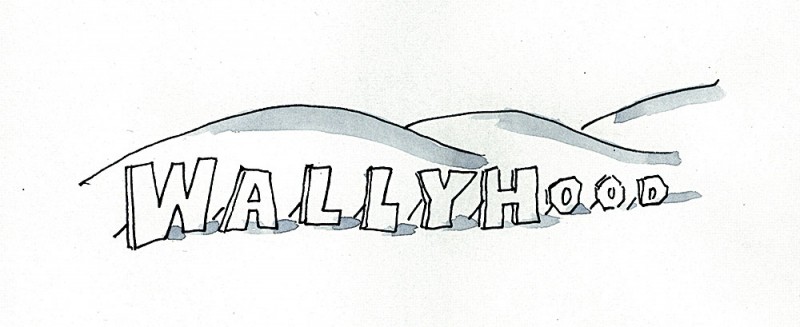
The American cinema is about the escape from our ordinary lives — to show a world of fantasy that reinforces not only the American Dream but the possibility and chance to dream at all.
I’ve had the final cut and creative control on all my films since the beginning — if not contractually, then by force of will. So how the films have turned out, for good or ill, is no one’s fault but my own.
Ridley Scott, at last count, has put out four different ‘director’s cuts’ on Blade Runner. People love it. They buy every version. On his last film the DVD offered alternative beginnings, middles and ends. He has a nose for what the punters want, even if has no idea what he wants.
Simple fact: the lower the budget, the more freedom you have as a filmmaker. The larger the budget, the more the studios and financiers are going to interfere in order to protect their investment.
I think you have to be strong willed and swift of foot to survive in Hollywood. I always said we are guerrillas on bicycles stealing our art away from them.
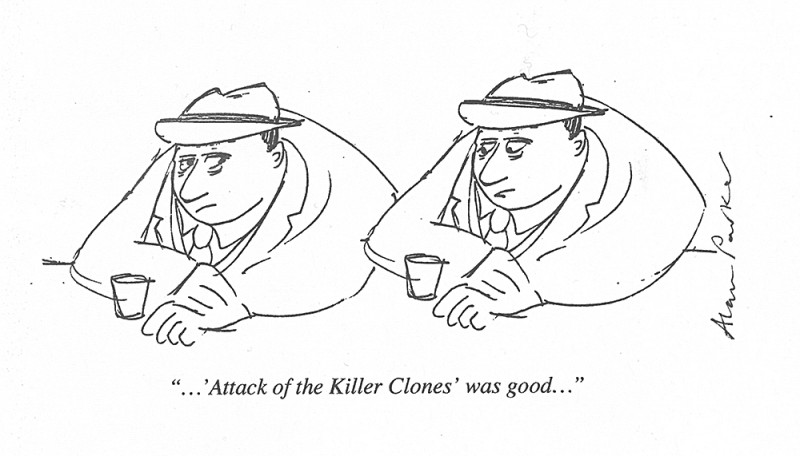
Hollywood tries to clone financial success, hence the many sequels and remakes. ‘Boggo 1’ begats ‘Boggo 2’ begats ‘Boggo 3’… like rabbits with myxamatosis.
Frankly, the money men hand over many millions of dollars to us filmmakers and can do very little to stop the train once its left the station. So it’s hard to hate them – or feel sympathetic either. If your film makes any money, they’re the first to grab it.
Today’s Hollywood folk are the progeny of a business created ninety years ago by flim-flam men, scoundrels, gamblers, tap-dancing glove salesmen and nickelodeon hucksters — so it’s hardly surprising that avarice and rapaciousness are plentiful and decency and honesty rather scarce.
“You want to lie to a whole town who lie for a living?” Lester Siegel, Argo
I’ve never counted, but in Hollywood, the tosspots seems to out-number the good guys by a considerable margin.
I have always had the rule that as long as I’m using them and they’re not using me, that’s fine. If this reverses, then it’s time to get on my bike and leave.
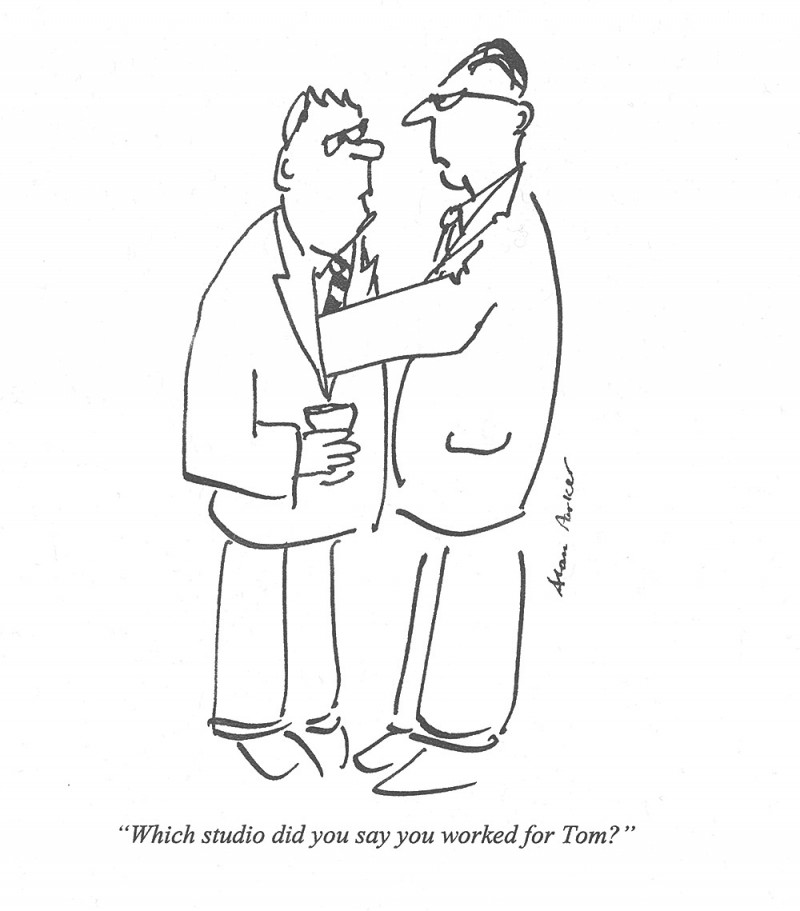
Filmmakers rarely see profit from their films. There’s an old maxim that says, “the further you are away from the cash register, the less likely you are to see any money.”
Or: “Certainly, he can present a bill for such services — after all, we are not Communists. But he must let us draw water from the well.” Barzini, The Godfather
The sad truth is that usually the only way filmmakers ever see ‘honest’ profits on their films is by suing the people who collect the money. The film industry do not understand the word ‘largesse’, only the word ‘litigation.’
Or “If someone says, “Trust me” and it’s not a sushi chef, I am immediately suspicious.” Harrison Ford
The rewards must be there for film financiers, otherwise it’s unfathomable why usually smart businessmen in other areas, continually part with their money to make films. Surely there must be cheaper ways of meeting Sharon Stone.
It always amuses me when studio executives fly in on the private jet to talk to filmmakers about going over budget.
MGM remade my film Fame. I never even got a phone call. They owned the copyright so they just went ahead. It’s like being mugged. Fortunately, the people who made it were rubbish so the film was poor.
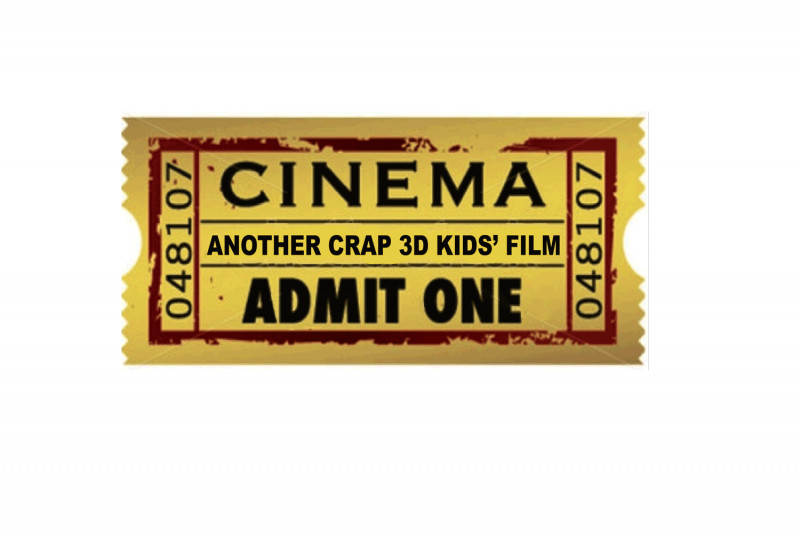
Guilt is spread all over Hollywood like dog shit. There’s some of it stuck to the sole of every Gucci shoe and Prada slipper.
The enormous power of the American distribution machine is very disturbing, unless, of course, it’s your film they’re distributing. Frankly, it’s the only guarantee that your film will be seen in forty different countries.
The studio system has always been a percentage game, because no one truly knows which film will succeed. The less films the studio make, the less chance of picking a winner. In a hundred years of the studio system nothing has changed: however smart they are, it’s always down to rolling the dice.
Or: “No one knows nothing” William Goldman
Or: “Every time I put my line in the water, I said a ‘Hail Mary’ and every time I caught a fish.” Fredo, The Godfather II
In London the plumbers are all Polish. In Warsaw the plumbers are all Romanian. In Los Angeles the plumbers are all aspirant screenwriters.
Hollywood is a mixture of Jewish, Christian, Muslim, Buddhist, Mormon, Scientologists and Hindu (plus a few Freemasons judging by the funny handshakes). But whether Hollywood follows Jesus, Moses, Mohammed, Kabbalah, Agape, Hubbard or the Moons (Sun Myung and Keith) one thing is certain: there are no atheists, because everybody worships the one true, crisp, greenback God: the dollar.
My advice to new filmmakers is to make sure you’re well paid for stripping your soul raw when making a movie because, sure as hell, you won’t be seeing any profits.
Hollywood film studios are a bit like banana republics: you blink and managements are unceremoniously evicted and within hours a whole new bunch of people are sitting behind the vacated desks.
In an unpredictable business, three things are guaranteed to go missing when a film is scarcely a year old: the chemical image on your negative, the studio executives you started out making the film with, and your profit participation.
I got off a plane at LAX, not a boat at Ellis Island, and I found a different America.
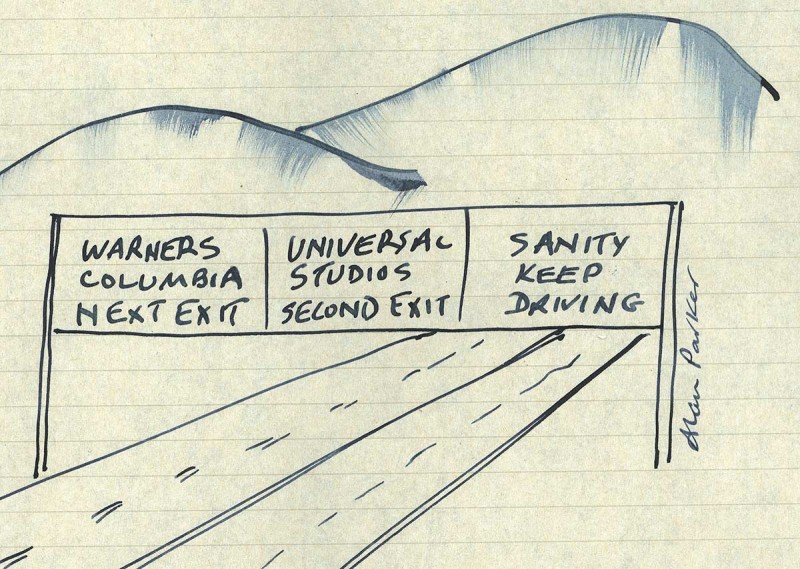
For Steven Spielberg to take the moral high ground regarding the demise of modern cinema is the ultimate conceit. Spielberg and Lucas more than any other directors, living or dead, corrupted mainstream filmmaking by creating the greed based, ‘juvenile blockbuster’ mentality that sounded the death knell of a pluralistic, demographically heterogeneous and intelligent cinema industry. They both have billions in the bank and blood on their hands.